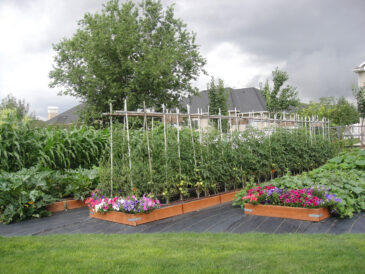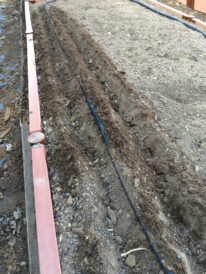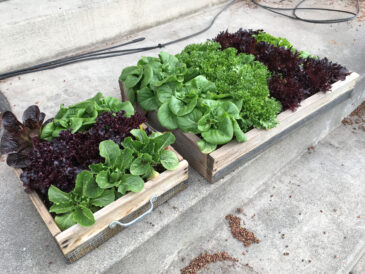Garden Help Desk: Six tips to help get you over your gardening hurdles
- If you’re a new gardener, you don’t need to start out with hundreds of feet of garden rows. Start small and prepare, practice and persist.
- Good soil preparation in the fall makes it easy to plant in the spring when Mother Nature gives us a break in the weather.
- Even a micro garden like these salad boxes can be a productive, successful garden.
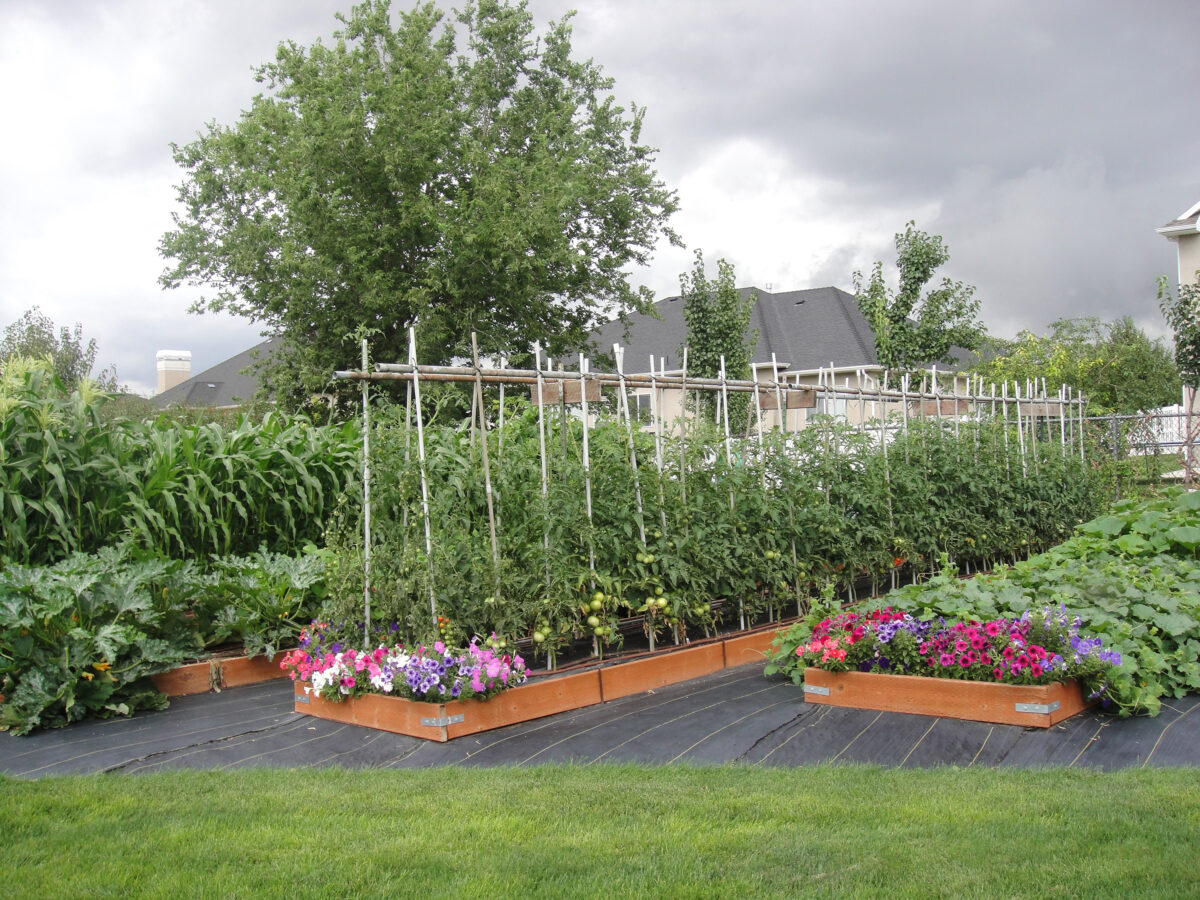
Courtesy Meredith Seaver, USU Extension
If you’re a new gardener, you don’t need to start out with hundreds of feet of garden rows. Start small and prepare, practice and persist.
Today we’re sharing some gardening encouragement from one of the Master Gardener candidates in this year’s class.
I spent time last summer at a local farmers market. This was partly to sell produce but mostly to interact with other backyard gardeners and better understand their interests, questions and frustrations.
I met a few avid growers who successfully produce their own food year after year. Mostly I met people who had tried gardening but had mediocre results. Many started spring gardens with high hopes but by fall wondered why they even bothered. Worse, some believed gardening success was beyond their abilities — as if some people “have it” and others don’t.
If you have been disappointed by your gardening results, take heart — you’re not alone! The experts will tell you gardening in Utah is not exactly easy, and that’s true. But challenges don’t make a task impossible. Success may require a different approach than anticipated, but that doesn’t mean your gardening dreams are out of reach. Trust me, if your neighbor can figure it out, so can you!
Meanwhile, give yourself a break. What you’re attempting may not be easy, but it is doable and completely worth it! Here are six tips to help you get past your hurdles.
Be realistic
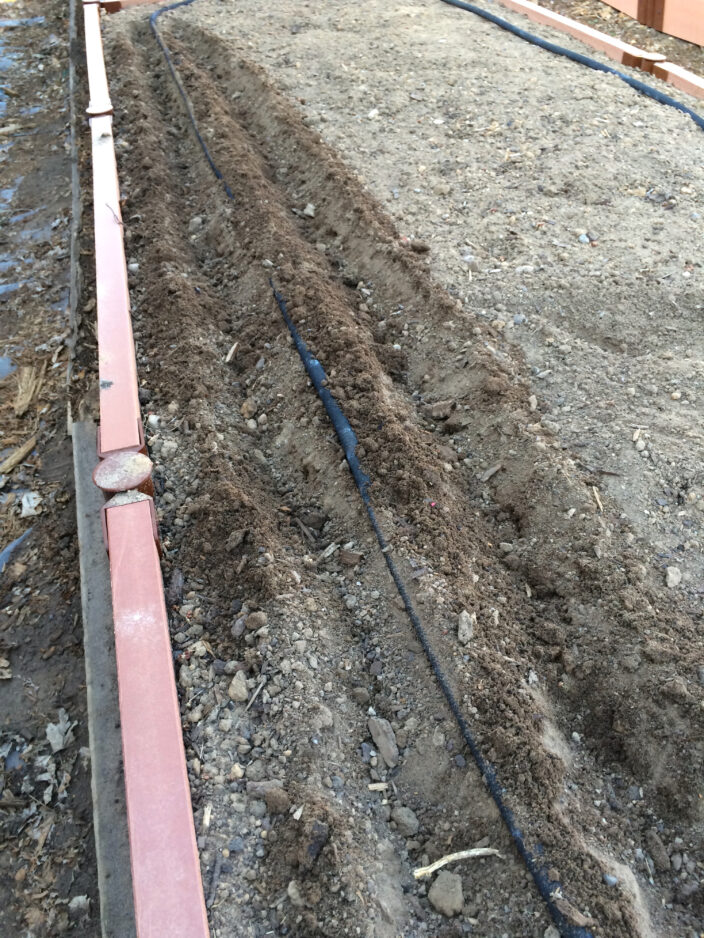
Courtesy Meredith Seaver, USU Extension
Good soil preparation in the fall makes it easy to plant in the spring when Mother Nature gives us a break in the weather.
The piles of large, blemish-free fruits and vegetables in the grocery store are misleading. What you don’t see are all the malformed, underripe, bug-damaged plants and pieces of produce that were discarded because they didn’t make the grade. Nobody gets perfect results every time. Strive for excellence, but celebrate when you get any kind of harvest from your garden that provides your family with nutritious eating.
Prepare for success
Some things in life require no preparation — gardening is not one of them. Preparing your soil before you sow is especially key to successful growing. Fall is generally the best time for soil preparation. You can wait until spring, but then you’ve often got erratic weather, muddy soil and cold working conditions to contend with. Plus, you might miss out on cool-weather crops like peas, carrots, onions, broccoli and cabbage that can all be planted in our area before spring officially arrives.
Get educated
I have a son who designs rocket engines for a living, so you can believe me when I say that growing your own food is not rocket science. Anyone can garden if they learn what it takes to succeed. Just don’t assume you already know enough. There is always more to learn through reading, watching online videos, taking gardening classes and asking questions, and experience may be the best teacher of all. Stay curious, and when you run into a roadblock, invest the time it takes to find the solution.
Fail fast — then try again
It’s good when you can recover from gardening mishaps in time to still get a harvest. Sometimes that means cutting your losses early and planting again or growing something else in that same place. Sow/pill bugs love my green bean seedlings. When they take out a few early sprouts, I take steps to discourage them, then plant more seeds. Eventually, I get a good harvest, even if I do have some setbacks along the way.
Remember: “set it and forget it” does not apply to gardening
Every gardener would love it if they could plant in the spring and harvest in the fall with no worry about what happens in between, but that’s not realistic. Gardens, like children and pets, need daily attention. If something goes haywire, your plants need you to be on top of it. Yes, that means commitment. If you lack time or energy, start small and add to your garden gradually. Small victories can be just as sweet as large ones.
Work with Mother Nature
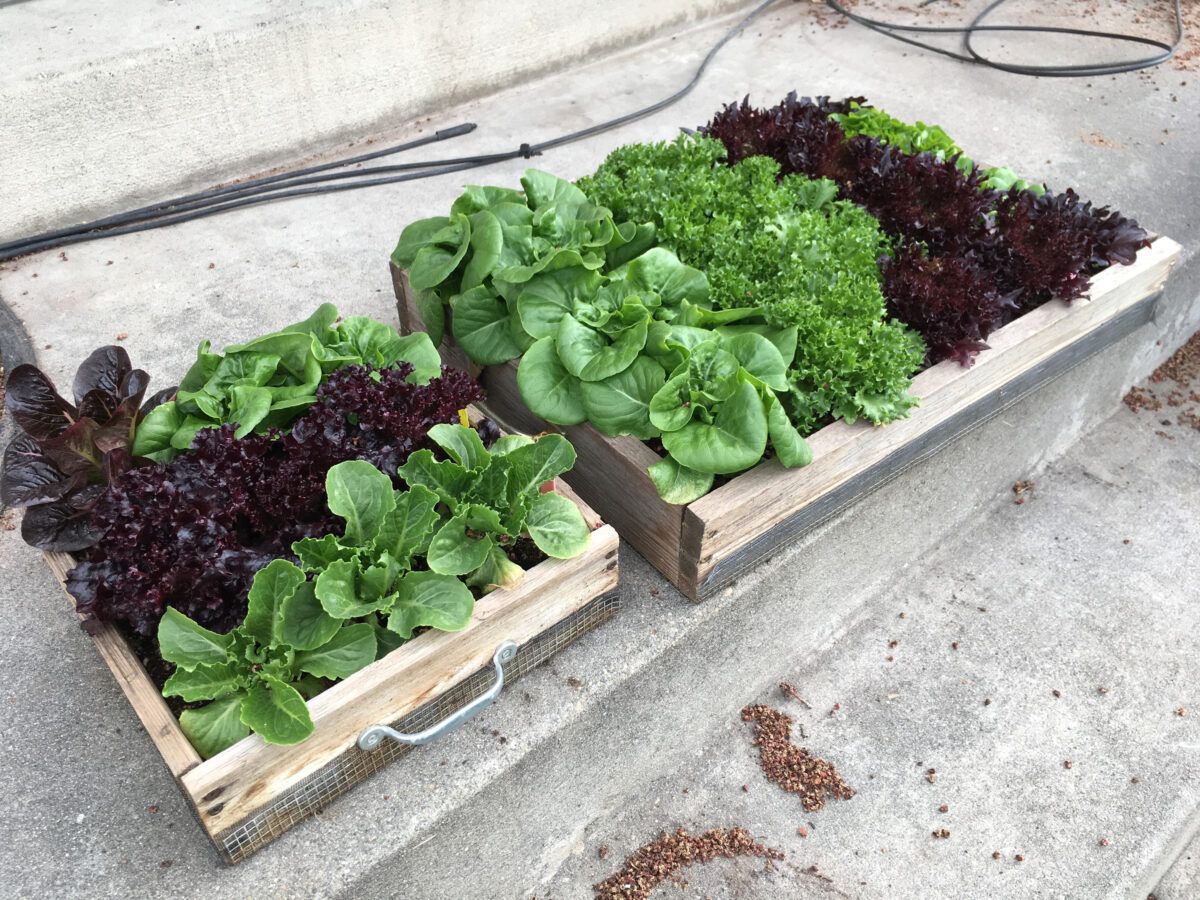
Courtesy Meredith Seaver, USU Extension
Even a micro garden like these salad boxes can be a productive, successful garden.
Some plants grow well in our area and some don’t. There’s not much you can do to make a plant thrive in Utah when it isn’t designed for our soil, short seasons or hot, dry air. Save yourself some grief by researching and planting varieties that like our growing conditions. You’ll be amazed and pleased with the results if you do.
Have I convinced you that you CAN grow your own food? As with most things, winning is a matter of steady, incremental improvement and not giving up. Stick with it, and you’ll get there!

